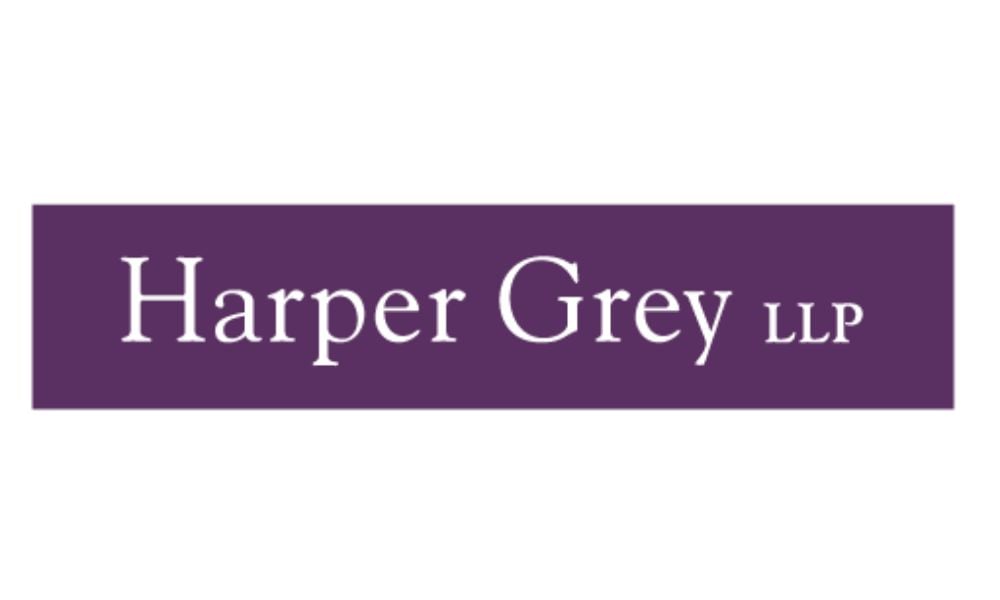In our globalized world, where countries have closer economic and cultural ties, it is increasingly common for parties in litigation to require evidence from witnesses outside of their jurisdiction. The reality is that witnesses and documents do not stay put and will often ‘spillover’ into a foreign jurisdiction.
If the witness in Canada does not cooperate, the foreign party may be required to look to the courts for assistance through issuance and enforcement of a letters rogatory, also known as letters of request, to get access to the witness whose evidence or documents are being sought. This process is unique, with several specific requirements that must be met to ensure a successful outcome.
This article provides an overview of the letters rogatory process in Canada, with a focus on British Columbia. We discuss factors the court will consider when asked to enforce these types of orders from a foreign court along with strategic considerations to assist those seeking to obtain evidence from witnesses located in British Columbia.
Enforcing Letters Rogatory in Canada
The legal authority to enforce a request for letters rogatory from a foreign court is set out in the Canada Evidence Act.[1] The enforcement of letters rogatory is guided by the interest of international comity and judicial assistance.[2] In British Columbia, the starting point in responding to a request for enforcement of letters rogatory from a foreign court is the presumption that the request will be granted unless it would be contrary to Canadian public policy or would otherwise be prejudicial to the sovereignty of its citizens.[3]
However, the court is required to undertake a substantive analysis and consider several factors before agreeing to enforce a letters rogatory from a foreign court.[4] It is important to be aware of these considerations to ensure that they have been addressed in the original letters rogatory obtained from the foreign court. In addition, courts in British Columbia have broad powers to make directions on important procedural aspects, such as the terms of the examination of the local witness or the nature of the documents being sought.
Key Factors
British Columbia courts consider several factors when determining whether to give effect to a letters rogatory requests from a foreign court.[5]
- Does the witness have evidence relevant to the foreign proceeding?
The party seeking to enforce the letters rogatory must demonstrate that the witness may have evidence relevant to the claim in the foreign proceeding. It is also important to tie the scope of the examination or documents sought to the issues that are raised in the pleadings in the foreign matter.
The question the court will consider is whether, on the balance of probabilities, the petitioner has shown that the witness may have evidence relevant to the claim in the foreign proceeding.[6] Provided that this can be answered in the affirmative based on the affidavit evidence presented, the requirement will be satisfied.
- Whether the evidence is necessary for trial and will be adduced at trial if admissible.
While the primary purpose of the letters rogatory is to obtain evidence for the purpose of trial, this element will be met, even if it also includes elements of discovery as well.[7]
The issue of necessity also involves a consideration of the evidentiary link between the evidence being sought and the parties in the foreign litigation. This, in part, relates to the “relevance” factor and the next factor, namely whether the evidence is otherwise obtainable.
- Whether the evidence is otherwise obtainable.
This is often a contentious issue, especially from the perspective of the local witness from whom the evidence or documents are being sought. The party seeking to enforce the letters rogatory is not required to exhaust all the evidence of other potential witnesses before seeking to obtain the evidence through a letters rogatory. Even if there is some is overlap between the evidence the witness has and another witness that may be accessible, the courts will not necessarily refuse to enforce the order. However, it is helpful to show that the witness has some evidence that is not otherwise accessible.
- Whether the order sought is contrary to public policy.
This is a high threshold to meet and rarely arises when it comes to enforcement of letters rogatory. The issue typically arises in the context where there is a concern over self-incrimination or infringement of rights protected by the Canadian Charter of Rights and Freedoms.[8]
- Whether the documents sought are identified with reasonable specificity.
This requirement is tied to the actual terms of the letters rogatory obtained from the foreign court. It is important that the scope of the documents sought is set out in reasonable detail in the letters rogatory from the foreign court and is specifically tied to the issues raised in the pleadings. This will make enforcement of the letters rogatory in British Columbia more likely to succeed.
- Whether the order sought is unduly burdensome, having in mind what the witness would be required to do and produce were the action to be tried locally?
Courts in British Columbia have the jurisdiction to narrow the scope of the intended examination of the witness or scope of the documents sought where they are unduly burdensome. However, there is a risk that the court will simply refuse to enforce the letters rogatory if what is being asked of the local witness is unduly burdensome. It is important that the scope of documents being sought are clearly defined and tied to the pleadings in the foreign proceeding.
Strategic Considerations
Addressing Canadian Requirements in the Letters Rogatory
It is critical that specific requirements, both substantive and procedural, are addressed in the original letters rogatory obtained from the foreign court. Once letters rogatory is obtained from the foreign court, a petition with supporting materials is filed and served on the witness and the other foreign parties.
Early collaboration between counsel in different jurisdictions in preparing the letters rogatory ensures requirements of both jurisdictions are addressed at the onset and avoids the expense and delay of having to go back to the foreign court if a necessary requirement is not addressed in the letters rogatory.
Involvement of a Commissioner
If you are intending to examine a local witness (and not just obtain documents), it is helpful to include a term that contemplates the examination taking place before a “commissioner”. The commissioner is typically a lawyer and must be independent.
The letters rogatory (and order to enforce the letters rogatory) will set out the scope of the commissioner’s powers, which normally include the ability to rule on any objections in accordance with the laws of evidence and practice of British Columbia. Proposing that the examination include a commissioner provides additional comfort to the court that the local witnesses rights to procedural fairness will be protected.
Compensation for Witness Fees and Legal Costs
Pursuant to the British Columbia Evidence Act, the witness to be examined pursuant to a letters rogatory order is entitled to the same conduct money and payment for expenses and loss of time as on attendance at a trial in the Supreme Court.[9] In many cases, the courts have also required the requesting party to pay legal fees of the proposed witness to be examined.
Conclusion
The need to obtain evidence or documents from witnesses located in a foreign jurisdiction is a reality in today’s inter-connected world. Letters rogatory are an important tool that allow parties to address this. However, as we have outlined in this article, there are various issues that need to be kept in mind early in the process to avoid the risk of having the foreign court refuse to enforce the letters rogatory or to avoid other procedural challenges to obtain evidence from witnesses in British Columbia.
***
 Salman Bhura is a Partner with Harper Grey LLP. With over 25 years’ experience, Salman has established a commercial litigation practice with a focus on real estate, business disputes, and insolvency. Salman’s practice covers an extensive range of matters and many dispute-resolution forums. He frequently represents clients involved in cross-border commercial disputes, including assisting clients enforce foreign judgments and letters rogatory. Salman is chair of our Real Estate Group and co-chair of our Insolvency and Restructuring Group.
Salman Bhura is a Partner with Harper Grey LLP. With over 25 years’ experience, Salman has established a commercial litigation practice with a focus on real estate, business disputes, and insolvency. Salman’s practice covers an extensive range of matters and many dispute-resolution forums. He frequently represents clients involved in cross-border commercial disputes, including assisting clients enforce foreign judgments and letters rogatory. Salman is chair of our Real Estate Group and co-chair of our Insolvency and Restructuring Group.
***
 Adam Way is a senior associate with Harper Grey LLP. Adam brings a unique and informed perspective to his diverse practice that covers a range of commercial, construction and environmental law matters. As part of his commercial practice, Adam has experience dealing with cross-jurisdictional issues including enforcement of letters rogatory and foreign judgments. Adam is the co-chair of our Environmental Law Group.
Adam Way is a senior associate with Harper Grey LLP. Adam brings a unique and informed perspective to his diverse practice that covers a range of commercial, construction and environmental law matters. As part of his commercial practice, Adam has experience dealing with cross-jurisdictional issues including enforcement of letters rogatory and foreign judgments. Adam is the co-chair of our Environmental Law Group.
[1] Section 46 of the Canada Evidence Act, R.S.C. 1985 c. C-5; in British Columbia, section 53 of the Evidence Act, R.S.B.C. 1996, c. 124.
[2] R. v. Zingre, [1981] 2 S.C.R. 392 (S.C.C.).
[3] Monster Energy Company v. Craig, 2019 BCCA 290 [“Monster Energy”] at para. 11.
[4] Duryea v. Matsumoto, 2023 BCSC 2061 at para. 45.
[5] Monster Energy at para. 13.
[6] Angus v. Transnational Automotive Group Inc., 2010 BCSC 576 at para. 38.
[7] Maverick LNG Holdings v. Teekay Shipping, 2009 BCSC 1538 paras. 27-30.
[8] Canadian Charter of Rights and Freedoms, Part 1 of the Constitution Act, 1982, being Schedule B to the Canada Act 1982 (UK), 1982, c 11.
[9] Section 53(3) of the British Columbia Evidence Act, R.S.B.C. 1996, c. 124.





